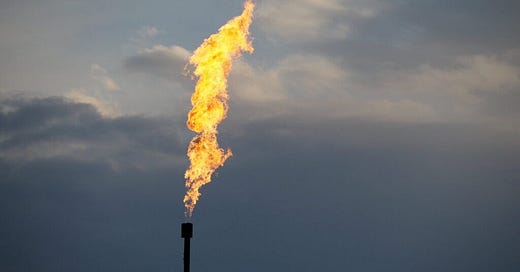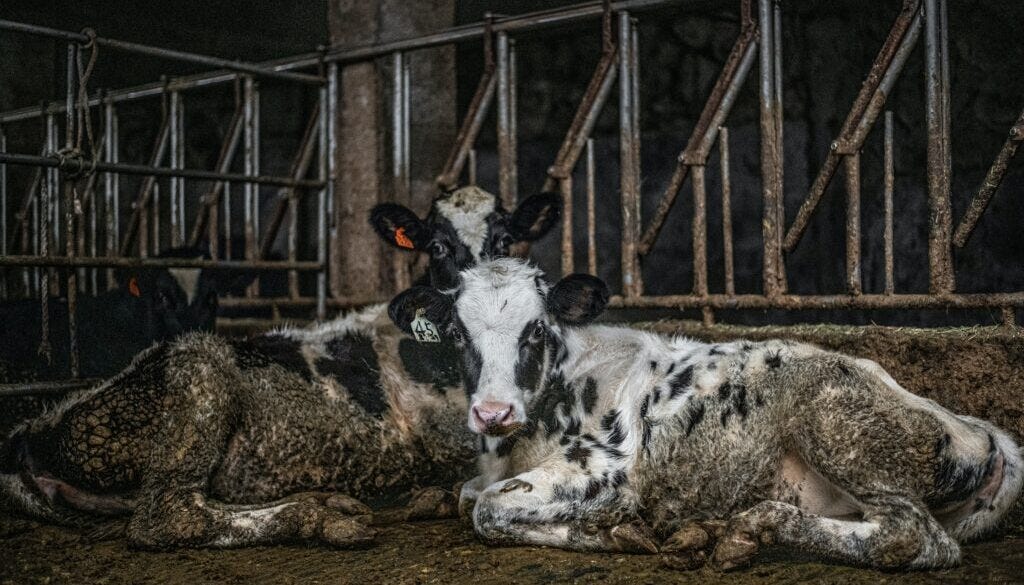Must-read recap: The New Lede's top stories
Vast majority of global methane emissions go unregulated; US efforts to turn farm animal poop into biofuel spark scrutiny.
Vast majority of global methane emissions go unregulated, says new study
Governments around the world are failing to effectively regulate and mitigate harmful emissions of methane, a greenhouse gas with a climate warming potential more than 25 times stronger than carbon dioxide, according to research published Friday.
Only 13% of global emissions from methane are covered by existing public mitigation policies, the researchers reported in the journal One Earth.
“Significant and underexplored [methane] mitigation opportunities exist,” the authors wrote.
The research comes on the heels of a report issued Thursday from the Environmental Integrity Project (EIP) showing that methane emissions from just 1,100 US landfills have a climate-warming effect equivalent to the yearly emissions of 66 million gas-powered vehicles.
Methane makes up about 12% of US greenhouse gas emissions stemming from human activities, including agricultural operations, fossil fuel extraction and use, waste management practices, and decay of organic waste in municipal solid waste landfills. Agriculture is the largest single US source of methane emissions, according to the Environmental Protection Agency (EPA).
Global methane emissions are currently rising faster than at any point since the 1980s. To try to keep global warming from exceeding the warming limit of 2.7 degrees Fahrenheit set by the Paris Agreement, global methane emissions must be reduced by at least 40-45% of 2020 levels by 2030, according to the Intergovernmental Panel on Climate Change.
Tackling methane emissions is a “critical” strategy if the rate of global warming is to be slowed, the authors state in the new paper. With less than 15% of methane emissions under regulation, global climate change policy has enormous room for improvement when it comes to methane, they say. (Read the rest of the story.)
US efforts to turn farm animal poop into biofuel spark scrutiny
Industrial-sized livestock operations have long been known for contaminating the environment and mistreating animals. Now, amid growing government incentives to turn the manure generated at these operations into climate-friendly biofuels, there are mounting concerns that the efforts could make industrial farming bigger and more dangerous.
Critics say government support for the production of biogas through the use of what are known as manure digesters comes with an array of well-documented risks. The digesters break down manure and capture methane gas, which can be used as fuel, but they come with a history of fires, explosions, hydrogen sulfide poisoning, methane leaks, and even drowning.
Methane digesters “exacerbate the dangers that are already endemic to industrial animal farming… where animals are housed in the same location as malfunctioning equipment, flammable liquids, and dangerous manure management practices,” said Alicia Prygoski, strategic legislative affairs manager at the Animal Legal Defense Fund (ALDF) animal advocacy group.
“Encouraging mass amounts of manure production, to facilitate the mass capture of the flammable gas that results from its decomposition, is what creates the increase in risks for explosions,” said Prygoski. “All you need is a spark.”
The Biden Administration’s much-touted Inflation Reduction Act includes funding and tax credits incentivizing farmers to install more of these digesters, and the new Farm Bill could include funds incentivizing the practice.
The ALDF and more than 100 other organizations sent a letter in December to US Agriculture Secretary Tom Vilsack calling on the agency to stop any allocation of additional funding from the IRA for the use or expansion of methane digesters or “production of factory farm gas.”
The groups cited a “ballooning factory farm gas industry,” and warned, among other issues, that digesters can “leak methane and manure and can even explode.” (Read the rest of the story.)




